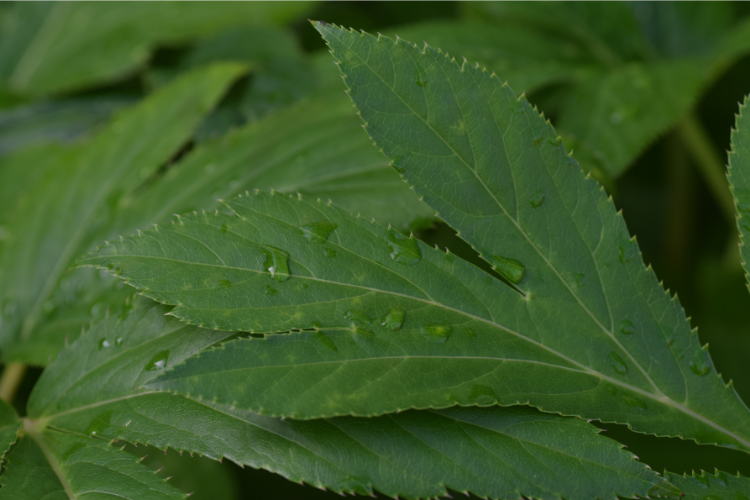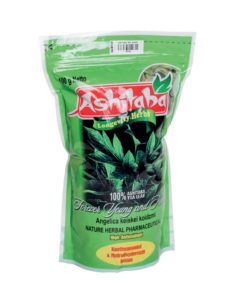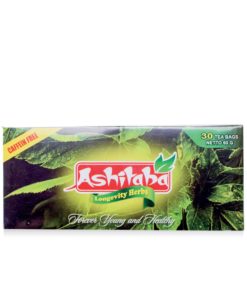Blog
Why is Ashitaba, Nature’s Fountain of Youth?
If you’re on a quest for wellness and longevity, then buckle up because we’re about to embark on a journey to discover the amazing benefits of Ashitaba. From its rich history to its potent health properties, we’ll explore why this extraordinary plant has been revered for centuries in Japanese culture and is gaining worldwide attention today.
1. Origins and Legend about Ashitaba
1. A Gift from Nature
Also known as Angelica keiskei, Ashitaba is a perennial plant native to the lush lands of Japan. Its name translates to “tomorrow’s leaf” in Japanese, hinting at its remarkable ability to regenerate its leaves quickly, ensuring a bountiful harvest. Growing wild along the coastal regions of the Japanese archipelago, Ashitaba is believed to have been discovered by ancient herbalists who were drawn to its vibrant green leaves and distinctive fragrance.
2. The Legend
Legend has it that Ashitaba was revered by the ancient Japanese for its mythical powers of rejuvenation and longevity. According to folklore, the plant was first discovered by a group of monks who stumbled upon it while wandering through the mountains. Intrigued by its unique properties, they began to incorporate Ashitaba into their daily rituals, believing it to be a gift from the gods.
Over time, tales of Ashitaba’s miraculous abilities spread far and wide, captivating the imaginations of all who heard them. From the legendary Samurai warriors who consumed Ashitaba before battle to the wise elders who attributed their longevity to its consumption, the plant became an integral part of Japanese culture and tradition.
3. Traditions
In Japanese culture, Ashitaba is more than just a plant; it’s a symbol of respect for nature’s bounty and a reminder of the interconnectedness of all living things. Throughout history, the Japanese have celebrated Ashitaba through various traditions and rituals, from the annual harvest festivals held in its honor to the centuries-old tea ceremonies where it is revered as a sacred herb.
In addition to its cultural significance, Ashitaba holds a special place in traditional Japanese medicine, where it is valued for its healing properties and used to treat a variety of ailments. Whether brewed into a soothing tea, infused into a healing salve, or simply enjoyed fresh from the garden, Ashitaba continues to play a vital role in the health and well-being of the Japanese people.
At Bali Buda, our Ashitaba is organically cultivated at the height of 1.200 meter above the sea level, without chemical fertilizers nor pesticides, around a fertile valley in Malang, Java, Indonesia.

2. Ashitaba: A Nutritional Powerhouse
Now, let’s dive into the nutritional treasure trove that Ashitaba offers. Packed with vitamins, minerals, and potent antioxidants, this green wonder is a powerhouse of nutrients. It’s loaded with vitamin C, vitamin E, vitamin K, iron, calcium, potassium, and chlorophyll, making it a superfood in every sense of the word.
Here are its numerous health benefits:
1. Immunity Booster
In today’s fast-paced world, maintaining a strong and resilient immune system is more important than ever. Luckily, nature has provided us with a powerful ally in the form of Ashitaba. Packed with essential nutrients and potent antioxidants, Ashitaba works wonders for bolstering immunity and keeping illness at bay.
One of the key components of Ashitaba’s immune-boosting arsenal is its high vitamin C content. Vitamin C is a superstar nutrient known for its ability to strengthen the immune system and ward off infections. As a powerful antioxidant, it helps protect the body against harmful free radicals and supports the production of white blood cells, which are essential for fighting off pathogens.
In addition to vitamin C, Ashitaba is rich in other antioxidants, such as flavonoids and chlorophyll, which play crucial roles in supporting immune function. These powerful compounds help neutralize harmful free radicals, reduce inflammation, and strengthen the body’s natural defenses.
2. Digestive Health
Rich in dietary fiber, Ashitaba supports healthy digestion by promoting regularity and preventing constipation. Its natural probiotics help maintain a healthy balance of beneficial gut bacteria, supporting optimal digestion and nutrient absorption. Additionally, Ashitaba possesses anti-inflammatory properties that soothe gastrointestinal discomfort and may alleviate symptoms of conditions like indigestion and bloating. Whether enjoyed as a soothing tea, added to salads, or incorporated into smoothies, Ashitaba is a delicious and effective way to nurture your digestive system and promote overall well-being.
3. Anti-Inflammatory
Ashitaba is a potent ally in combating inflammation throughout the body, offering a natural and effective solution for those seeking relief from discomfort and pain. Rich in antioxidants like flavonoids and chlorophyll, Ashitaba works to neutralize free radicals and reduce oxidative stress, which are key drivers of inflammation. By calming the body’s inflammatory response, Ashitaba may help alleviate symptoms associated with conditions such as arthritis, inflammatory bowel disease, and chronic pain. Moreover, Ashitaba’s anti-inflammatory properties extend beyond its antioxidant content; it also contains unique compounds like chalcones, which have been shown to inhibit the production of inflammatory molecules in the body. Whether enjoyed as a tea, added to recipes, or consumed in supplement form, Ashitaba offers a natural and holistic approach to managing inflammation and promoting overall health and well-being.
3. In Which Form Can You Find Ashitaba?
Ashitaba can be found in various forms, each offering its own unique benefits and versatility:
Fresh Leaves: Harvested directly from the plant, fresh Ashitaba leaves are vibrant green and packed with nutrients. They can be eaten raw in salads, added to smoothies, or used as a garnish for dishes.
Dried Leaves: Drying Ashitaba leaves preserves their nutrients and allows for longer shelf life. Dried Ashitaba leaves can be brewed into tea by steeping them in hot water, providing a convenient way to enjoy their health benefits.
Powder: Ashitaba leaves can also be dried and ground into a fine powder, which can be easily added to smoothies, juices, or recipes. Ashitaba powder retains the nutritional content of the leaves and offers a concentrated dose of vitamins, minerals, and antioxidants.
Capsules and Extracts: For those looking for a convenient way to incorporate Ashitaba into their daily routine, capsules and extracts are available. These concentrated forms of Ashitaba are easy to take as supplements and provide a convenient way to reap the plant’s health benefits.
Topical Products: Ashitaba extracts and oils are also used in various topical products such as creams, lotions, and balms. These products are often used for skincare purposes due to Ashitaba’s antioxidant and anti-inflammatory properties, which may help promote healthy skin and reduce signs of aging.

4. How to Use Ashitaba?
Now that you’re convinced of Ashitaba’s incredible health benefits, you’re probably wondering how to incorporate it into your diet. Fear not, for there are plenty of delicious ways to enjoy this green marvel:
-
Ashitaba Tea: Start your day on the right note with a soothing cup of Ashitaba tea. Simply steep a few leaves in hot water for a refreshing and nutritious beverage.
-
Smoothies: Add a handful of Ashitaba leaves to your favorite smoothie recipe for an extra boost of vitamins and minerals.
-
Salads: Sprinkle chopped Ashitaba leaves on top of your salads for a burst of freshness and nutrition.
-
Stir-Fries: Toss Ashitaba leaves into stir-fries and soups for a healthy and flavorful twist.
Takeaway
Ashitaba is not just a plant; it’s a symbol of vitality, longevity, and holistic wellness. Whether you’re sipping it as a tea or sprinkling it on your salad, incorporating Ashitaba into your daily routine can have a profound impact on your health and well-being. So, why wait? Join the Ashitaba revolution today and embark on a journey to a healthier, happier you!

 Indonesia
Indonesia



